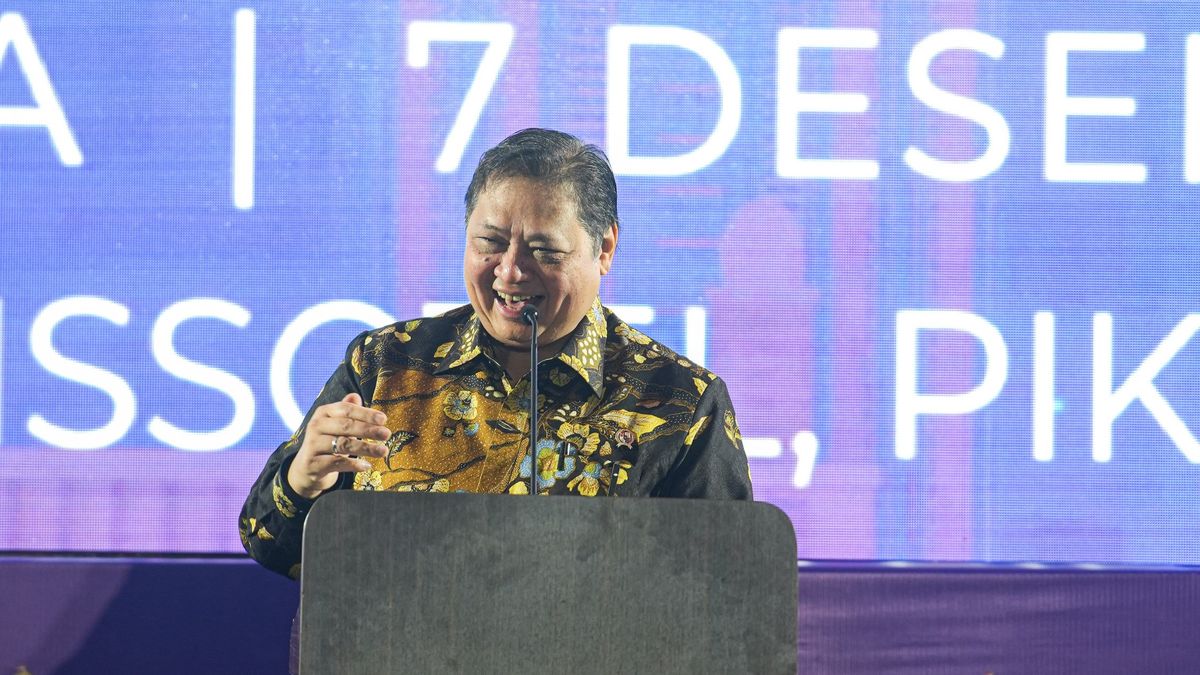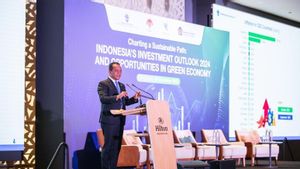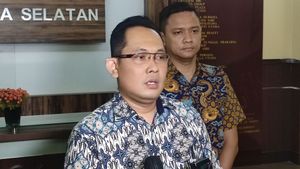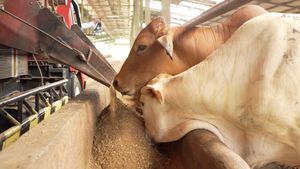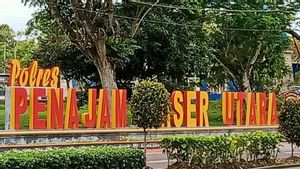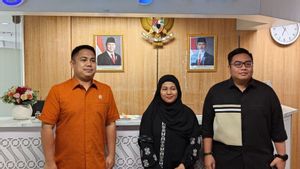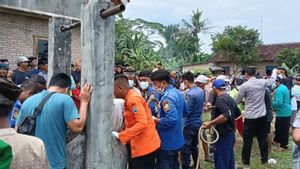JAKARTA - In the midst of the world economy that still faces various risks and uncertainties, Indonesia's economic resilience is still maintained in the third quarter of 2023 at 4.94 percent (yoy) with support from solid domestic demand.
Among peer countries, Indonesia's economic growth is relatively better than China 4.9 percent, Mexico 3.30 percent, and Malaysia 3.29 percent, with the support of inflation remaining under control and within the target range, where in November 2023 it was 2.86 percent (yoy).
One of Indonesia's advantages compared to other countries, we have elections every five years, and produce a stable leadership and government. That is highly appreciated by the world. Indonesia is the largest country in Southeast Asia. Southeast Asia is peaceful because of Indonesia," explained Coordinating Minister for the Economy Airlangga Hartarto in his official statement, Saturday 9 December.
Airlangga said the Southeast Asian economy is 40 percent in Indonesia. Therefore, Indonesia is the center of gravity and is now the center of growth.
Airlangga also appealed to KADIN to be able to run Corporate Social Responsibility (CSR) well.
"I don't want poverty where the industry exists. The industry has CSR, now CSR is expected to encourage multiplier effect on its people," said Airlangga.
Furthermore, Indonesia wants to achieve the vision of Indonesia Gold 2045: "Indonesia, the Archipelago is Sovereign, Advanced, and Sustainable" with a nominal GDP target of 9.8 trillion US dollars or a large five GDP with a GNI Per capita of 30.300 US dollars. In addition, the middle income population is 80 percent, the manufacturing industry covers 28 percent of GDP and absorbs 25.2 percent of the workforce.
To achieve this, Airlangga said it was necessary to take a transformative development approach, namely converting a low increase to a high added value, needing great leaps, and also needing brave leaders. This transformation has begun during the administration of President Joko Widodo.
Indonesia also plays an active role in Indonesia in various international cooperation forums such as the G20, APEC, ASEAN, and RCEP. Indonesia has now joined the economic cooperation of the Indo-Pacific Economic Framework (IPEF) and is in the process of accessing it to become an OECD member.
In addition, Indonesia is currently finalizing several negotiations on international cooperation, both bilateral and regional, including Indonesia-EU CEPA (IEU-CEPA) and ASEAN Digital Economy Framework Agreement (DEFA).
SEE ALSO:
In addition, Indonesia is also preparing to pioneer Carbon Capture Storage in ASEAN as an effort to reduce greenhouse gas emissions, with Indonesia's potential, namely the storage capacity of CO2 of 4.85 giga tons of CO2 in the delayed reservoir and 572 giga tons of CO2 in the saline aquifer.
Airlangga also said that improving the quality of human resources, especially through digitalization, is also important as one of the main levers towards Advanced Indonesia.
According to Airlangga ASEAN, he was one of the first to develop a Digital Economy Framework Agreement (DEFA). That's the leader of the declaration. Where for business as usual, the digital economy in ASEAN is only 1 trillion US dollars
"But with DEFA, interoperability, then with the same ecosystem including local currency transactions and payments, we can already run in five ASEAN countries and will follow Japan and Korea. With this all the way, God willing, the economy will increase to 2 trillion US dollars. And from 2 trillion US dollars, 600-800 billion US dollars from Indonesia, "concluded Airlangga.
The English, Chinese, Japanese, Arabic, and French versions are automatically generated by the AI. So there may still be inaccuracies in translating, please always see Indonesian as our main language. (system supported by DigitalSiber.id)
